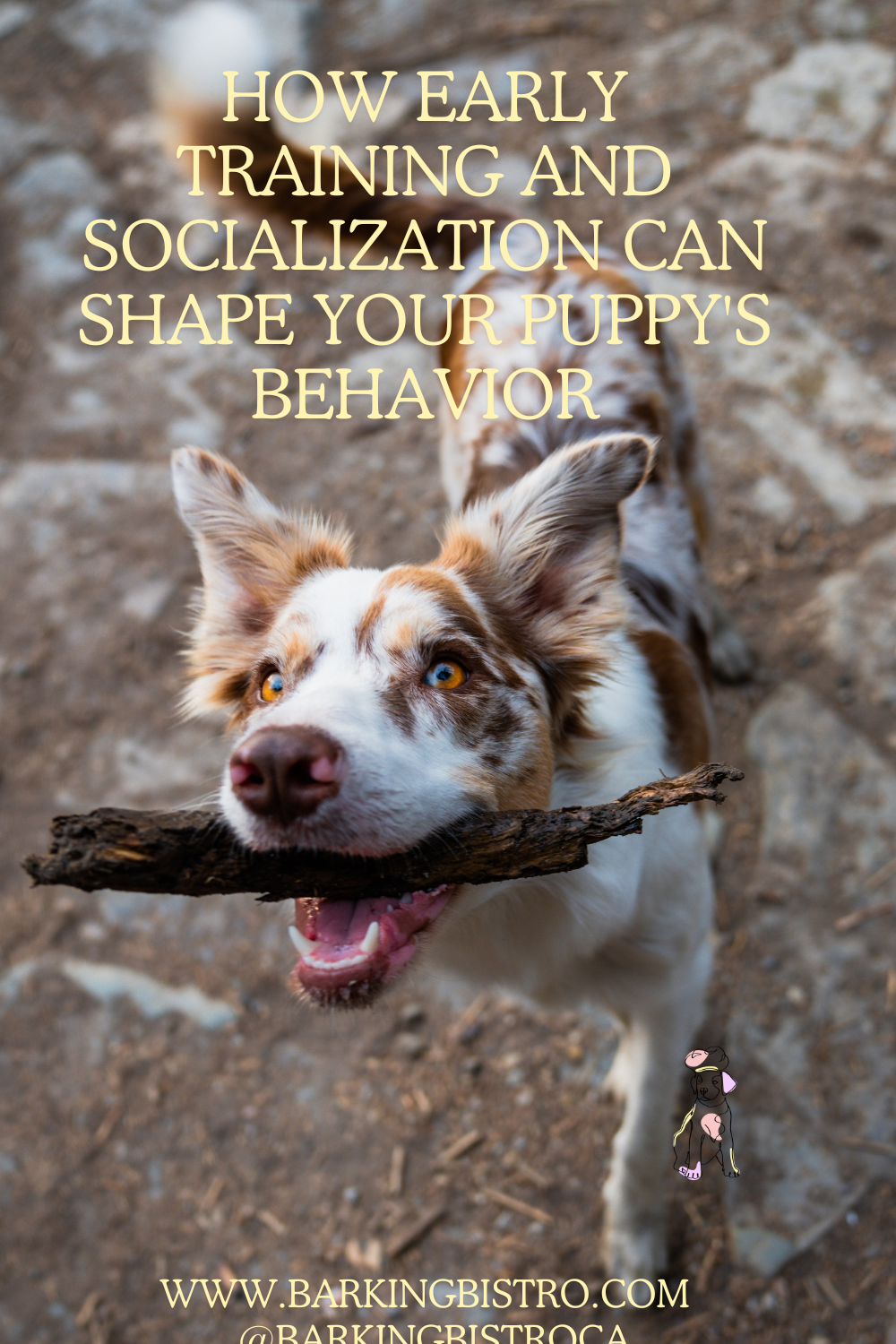As a dog owner, you want nothing but the best for your furry friend. You want them to grow into well-behaved, confident, and sociable dogs. The key to achieving this lies in early training and socialization. By providing your puppy with the right foundation, you can shape their behaviour and set them up for success in the future. In this article, we will explore the importance of early training and socialization for puppies, the critical socialization period, essential skills to teach your puppy, positive reinforcement techniques, introducing your puppy to different environments and situations, common challenges and solutions, and the role of professional trainers and puppy socialization classes. Let’s dive in and unlock the potential of your puppy!
Understanding the Critical Socialization Period for Puppies
Puppies go through a critical socialization period between the ages of 3 and 14 weeks. They are most receptive to new experiences, people, animals, and environments during this time. Exposing your puppy to as many positive experiences as possible during this period is crucial to help them develop into well-rounded dogs. By carefully introducing your puppy to different sights, sounds, smells, and sensations, you can build their confidence and reduce the likelihood of fear or aggression later in life.
Essential Skills to Teach Your Puppy During Early Training
Early training is not just about teaching basic commands like sit, stay, and come. It is about instilling good manners, impulse control, and proper behaviour in your puppy. Start with the basics and gradually progress to more advanced commands and behaviours. Teach your puppy to walk on a leash without pulling, sit calmly when guests arrive, and wait patiently for their meals. By focusing on these fundamental skills, you are laying the foundation for a well-behaved and obedient dog.
Positive Reinforcement Techniques for Effective Puppy Training
Positive reinforcement is the most effective and humane way to train your puppy. It involves rewarding desired behaviours with treats, praise, and affection. When your puppy performs a desired behaviour, such as sitting or coming when called, immediately reward them with a treat and verbal praise. This creates a positive association and motivates your puppy to repeat the behaviour in the future. Avoid punishment or harsh training methods, as they can lead to fear and anxiety in your puppy.
Socializing Your Puppy with Other Dogs and Animals
Socializing your puppy with other dogs and animals is crucial for their development. It helps them learn appropriate canine communication and prevents the development of fear or aggression towards other animals. Arrange playdates with friendly, vaccinated dogs, and gradually introduce your puppy to other animals, such as cats, rabbits, or birds. Supervise all interactions and intervene if necessary to prevent any negative experiences. By exposing your puppy to various animals, you are teaching them to be confident and respectful in the presence of other species.
Introducing Your Puppy to Different Environments and Situations
In addition to socializing with other animals, exposing your puppy to various environments and situations is essential. Take them for walks in different neighbourhoods, parks, and busy streets. Introduce them to different surfaces like grass, sand, and concrete. Expose them to loud noises such as traffic, sirens, and fireworks. By gradually exposing your puppy to different stimuli, you are helping them become more adaptable and less prone to fear or anxiety in new situations.
Common Challenges and Solutions During the Early Training and Socialization Process
The early training and socialization process may come with its fair share of challenges. Some puppies may struggle with potty training, while others may exhibit behaviour problems such as biting or excessive barking. It is important to address these challenges promptly and seek professional help if needed. Consult a reputable dog trainer or attend puppy socialization classes for expert guidance and support. You can overcome these challenges with patience, consistency, and the right approach and help your puppy thrive.
The Role of Professional Trainers and Puppy Socialization Classes
Professional trainers and puppy socialization classes can be invaluable resources for you and your puppy. Trainers have the knowledge and experience to guide you through the training process, offer personalized advice, and address specific behaviour issues. Puppy socialization classes provide a controlled and supervised environment for your puppy to interact with other puppies and learn important social skills. These classes also allow you to network with other dog owners and share experiences and tips. Consider enrolling in a puppy socialization class or hiring a professional trainer to enhance your training journey.
Conclusion: The Lifelong Benefits of Early Training and Socialization for Your Puppy
Investing time and effort in early training and socialization is one of the best things you can do for your puppy. It not only shapes their behaviour, prevents future problems and strengthens the bond between you and your furry companion. By providing your puppy with positive experiences, teaching essential skills, and exposing them to different environments and situations, you set them up for a lifetime of happiness and success. So, start early, be patient, and enjoy the journey of unlocking the full potential of your puppy!
Photo by Jacob Vizek on Unsplash

